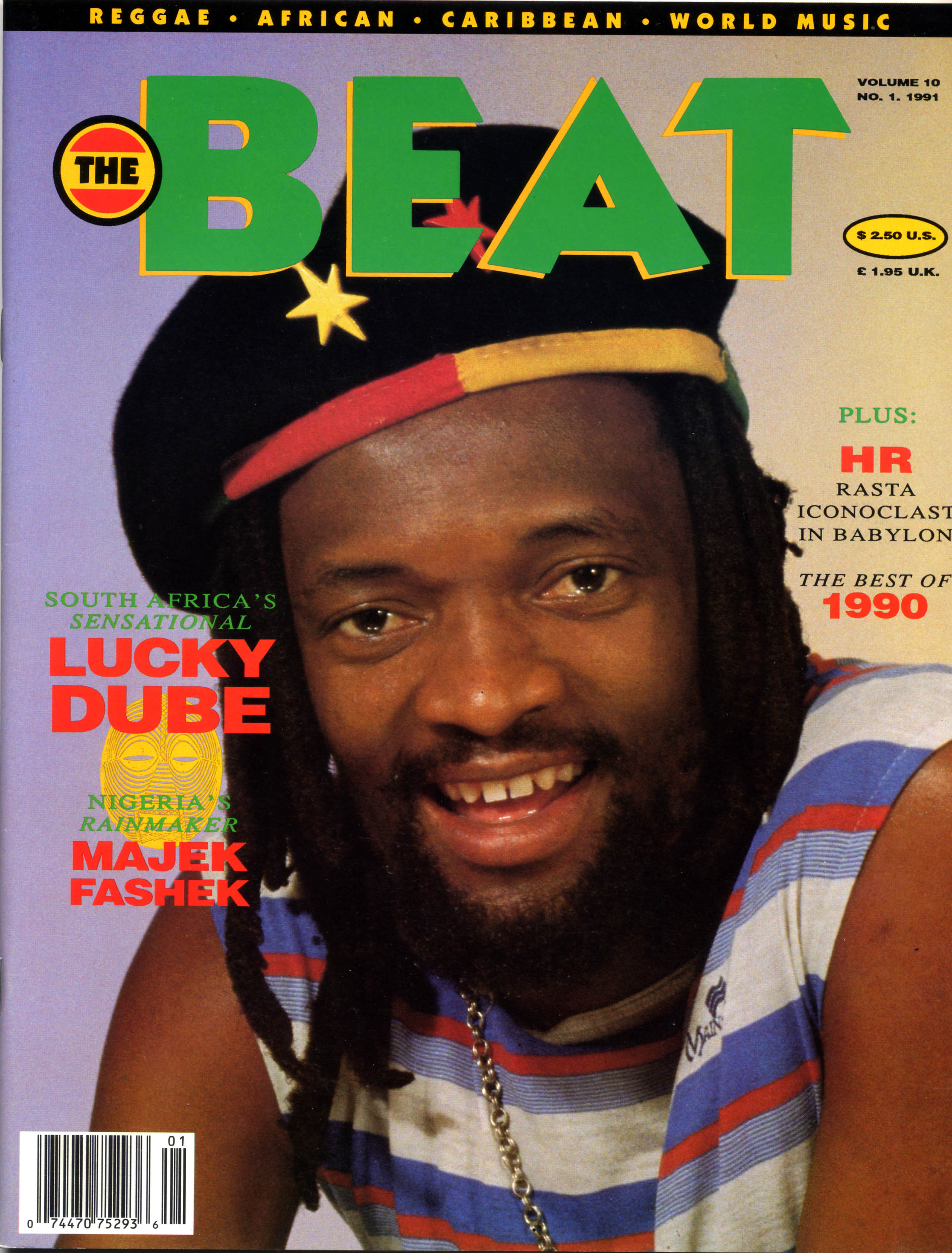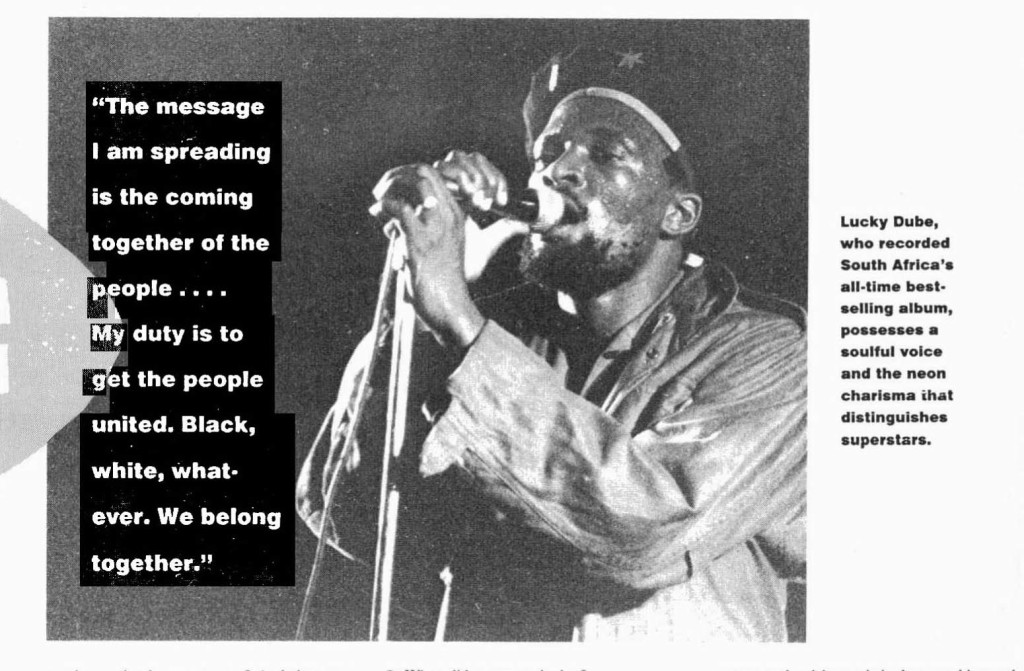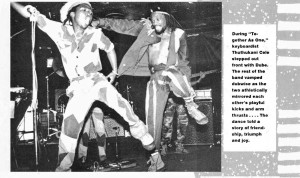In our continuing "Best of The Beat on Afropop" series on reggae in Africa, we turn next to South Africa's reggae star Lucky Dube, who came on our radar in 1989 with his debut album, Slave. His appearances in the U.S., beginning in the early '90s, were a revelation. With a full band lineup that included three female vocalists and a horn section, and a thrilling voice that could go from a Peter Tosh-like gruffness to a Jimmy Cliff-style soaring falsetto, and the spectacular dance moves, Dube made an immediate impact on American reggae fans. In addition, the messages in his songs carried the additional implied protest against the injustices of the apartheid system under which he grew up.
Dube's first appearance in Los Angeles left an indelible impression: not only because he performed the reggae repertoire to perfection, he was also capable of genre-shifting into house-rocking mbaqanga numbers. At the time of this interview, in 1991, he had become the top singer in South Africa, where his Slave album sold 300,000 copies. Beat writer Jim Gardner found out more about Lucky's life and career in this interview.
READ OR DOWNLOAD PDF HERE: Beat101LuckyDube











